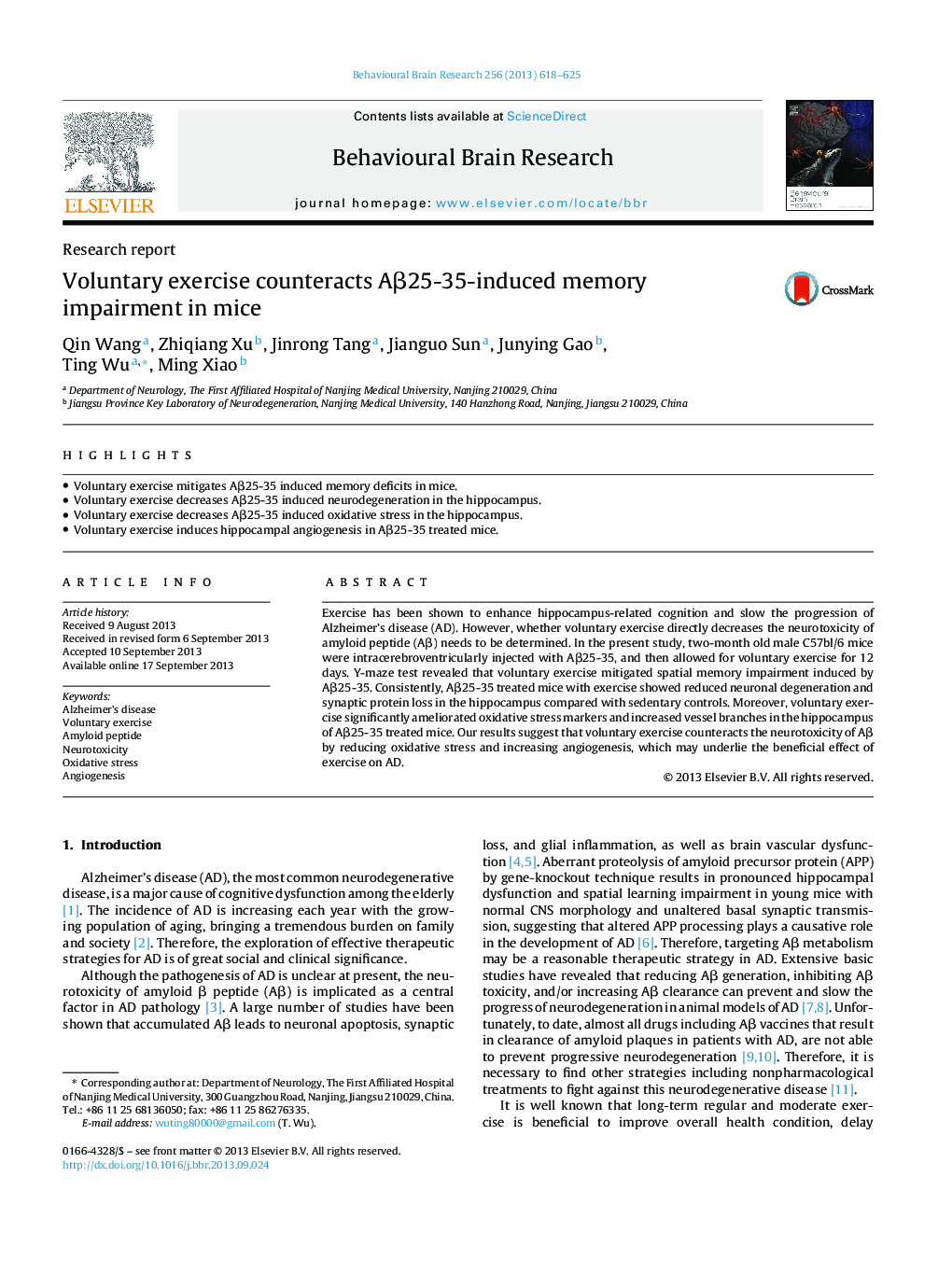| Article ID | Journal | Published Year | Pages | File Type |
|---|---|---|---|---|
| 6258895 | Behavioural Brain Research | 2013 | 8 Pages |
â¢Voluntary exercise mitigates Aβ25-35 induced memory deficits in mice.â¢Voluntary exercise decreases Aβ25-35 induced neurodegeneration in the hippocampus.â¢Voluntary exercise decreases Aβ25-35 induced oxidative stress in the hippocampus.â¢Voluntary exercise induces hippocampal angiogenesis in Aβ25-35 treated mice.
Exercise has been shown to enhance hippocampus-related cognition and slow the progression of Alzheimer's disease (AD). However, whether voluntary exercise directly decreases the neurotoxicity of amyloid peptide (Aβ) needs to be determined. In the present study, two-month old male C57bl/6 mice were intracerebroventricularly injected with Aβ25-35, and then allowed for voluntary exercise for 12 days. Y-maze test revealed that voluntary exercise mitigated spatial memory impairment induced by Aβ25-35. Consistently, Aβ25-35 treated mice with exercise showed reduced neuronal degeneration and synaptic protein loss in the hippocampus compared with sedentary controls. Moreover, voluntary exercise significantly ameliorated oxidative stress markers and increased vessel branches in the hippocampus of Aβ25-35 treated mice. Our results suggest that voluntary exercise counteracts the neurotoxicity of Aβ by reducing oxidative stress and increasing angiogenesis, which may underlie the beneficial effect of exercise on AD.
